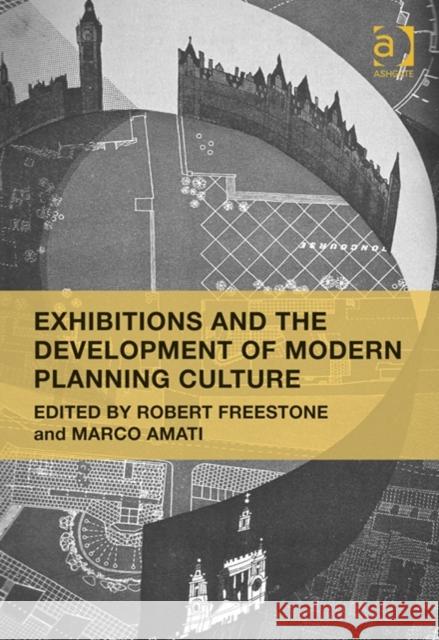Exhibitions and the Development of Modern Planning Culture » książka
Exhibitions and the Development of Modern Planning Culture
ISBN-13: 9781409454595 / Angielski / Twarda / 2014 / 320 str.
Exhibitions and the Development of Modern Planning Culture
ISBN-13: 9781409454595 / Angielski / Twarda / 2014 / 320 str.
(netto: 746,32 VAT: 5%)
Najniższa cena z 30 dni: 730,42
ok. 22 dni roboczych.
Darmowa dostawa!
The evolution of city planning theory and practice in the first half of the twentieth century was captured and driven by a range of exhibitionary practices in a variety of settings globally, from international expos to local public halls. The agendas of the promoters varied, but exhibitions generally drew their social legitimacy from their status as 'appropriate educative agencies of citizenship'. Bringing together a range of international case studies, this volume explores the highly visual genre of public planning exhibitions worldwide. In doing so, it provides a unique lens on the development of modern urban planning and design from the late 19th century to the present day. Focussing mainly on the first half of the 20th century, it looks in particular at historic exhibitions which sought to transform urban society's understanding of the possibilities of planning as a force for social betterment. The visuality of presentation, contemporary reactions, and outcomes for the planning profession and the community are explored to make for a unique, innovative and attractive approach to the history of planning ideas. The five major themes are the visual representation of ideas and ideologies; institutions and individuals involved; the broader context of display; and the impacts and implications for the development planning culture. With contributors including Karl Fischer, John Gold, Carola Hein, Peter Larkham, Javier Monclus, and Mark Tewdwr-Jones, the dominant intellectual paradigm further unifying the collection is planning history.











